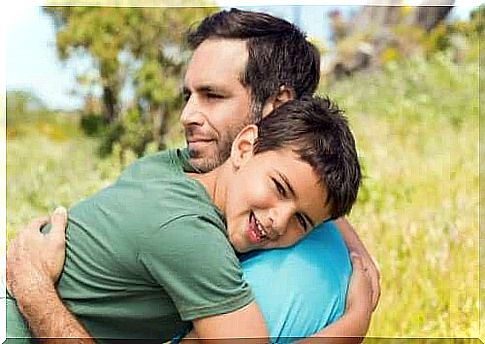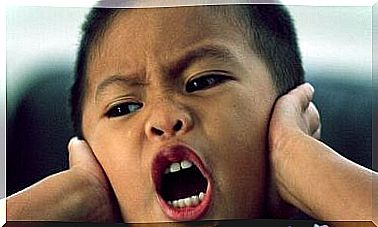13 Phrases That Encourage Positive Behavior In Children

Parents often feel overwhelmed by their children’s negative behavior. In these situations, they may yell, scold, or punish their children. This has been shown to impair their emotional development. Therefore, it is better to use phrases that encourage positive behavior.
The theories of educators and psychologists provide alternatives that are much more effective than punishment and thus also prevent bad behavior from repeating.
There are phrases you can use to encourage positive behavior in your children. If you don’t want to miss them, read on!
13 phrases that encourage positive behavior
1. “If you do… (a specific task), you get… (a reward)”
It has been proven that reinforcing positive behavior rather than punishing bad behavior is much more effective. If you want your kids to repeat an activity, you need to reinforce it. If you want to eliminate it, you have to stop giving reinforcements, such as punishment.

The rewards don’t necessarily have to be material, but rather, for example, playing with them, going to the park, going to the movies, taking a bike ride or going to the woods.
2. “I know you can do better”
It is important to convey that you are confident that your children can behave well and do things well.
3. “I’m very proud of you” invites positive behavior
Let your child know that you are happy with his performance and efforts, even if something goes wrong with him. This way you encourage him to do better next time.
4. “If you keep acting like this, I’m not going to listen to you”
Yelling or talking to them to explain what they did wrong will only reinforce that misbehavior. This is because you pay attention to them when they do something negative. So it’s best for you to leave a room or tell them to leave a room so you don’t pay more attention to that negative behavior.
5. “Always tell the truth and never lie”
Many children lie for fear of being laughed at or because they cannot distinguish fantasy from reality. So you should reward them when they tell the truth. You have to praise the fact that they were brave.
6. “If you calm down, we can find a solution”
Sometimes children cry because they desperately want something nonsensical and you don’t give it to them. It’s important not to give in. You can help them calm down and find an alternative.
7. “Try again” helps encourage positive behavior
If they didn’t do something right, instead of focusing on what they did wrong, give them a chance to try again and fix their mistake.
8. Encourage positive behavior by saying “I love you”
Telling your kids you love them and constantly reminding them will help them feel good about themselves, behave better, and be more positive.

9. “Remember when you had to…? Do you have…?”
Rather than scolding or yelling at them for failing to complete a certain task, it’s best to do it in a positive way. You can just remind them what to do so they can do it.
10. “You made a mistake, but you can learn from it”
It’s much better for your kids to realize they’ve made a mistake than to say “I told you so” . Like adults, children don’t learn anything unless they make their own mistakes.
11. “I’ll be there to help you if you need me”
This way you show your child that if he needs something, you are there for him. By reminding them of this fact, you are actually making them come to you when they feel lost.
12. “I believe you and I know you will”
This way you give your child the confidence they need when they tell you they are going to do something. It will also motivate them to do everything they can to achieve this.
13. And the last sentence that can encourage positive behavior: “I know you didn’t want to do it”
In this way you make sure that your child doesn’t do it anymore because you believed him and put your trust in him.
Now that you know some phrases that encourage positive behavior in your kids, it’s your turn to use them. It is important to pay attention to your children when they do something good and empower them by telling them how much you love them and how proud you are of them. Use these phrases in your daily life to see the positive results in your child’s behavior.








